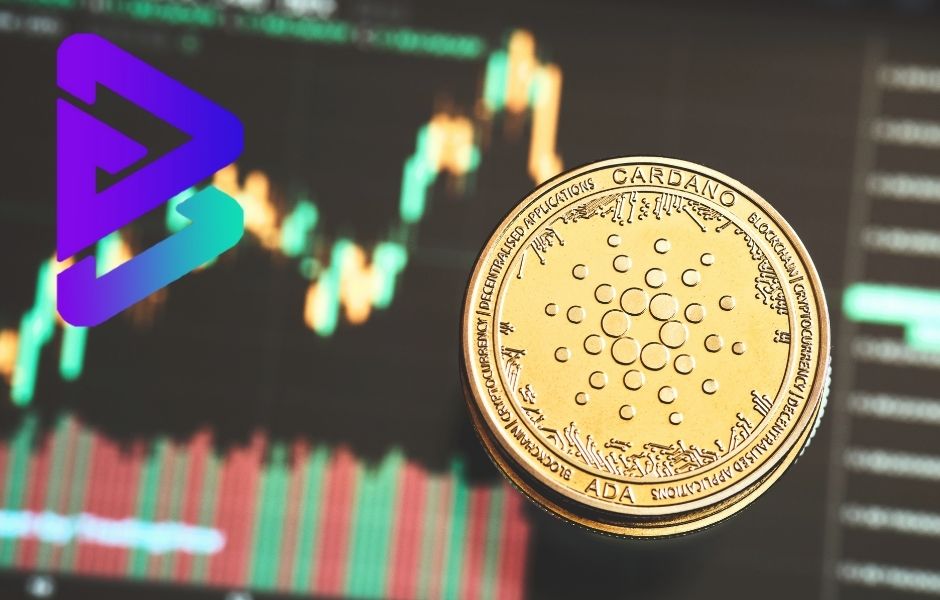What Are Data Science Applications And Its Top 5 Intriguing Role In DeFi’s Future
In today’s data-driven world, information is power. But raw data itself is just a jumbled mess of numbers and text. Data science is the art and science of extracting knowledge and insights from this data, empowering us to make informed decisions and solve complex problems. Here, we delve deep into the fascinating world of data science, exploring its core concepts, methodologies, and applications across various fields.
The Foundational Pillars:
Data science rests on a strong foundation of three key disciplines:
-
Statistics: This branch of mathematics equips us with the tools to analyze data, identify patterns and trends, and draw meaningful conclusions. Statistical methods like hypothesis testing, regression analysis, and clustering are fundamental for understanding relationships within data.
-
Machine Learning: This field of artificial intelligence allows us to build algorithms that can learn from data without explicit programming. Machine learning models can be trained on massive datasets to identify patterns, make predictions, and even automate tasks.
-
Programming Languages: Data scientists utilize various programming languages to manipulate, analyze, and visualize data. Popular languages include Python (with libraries like NumPy, Pandas, and scikit-learn), R, and SQL.
Understanding DeFi
Decentralized Finance (DeFi) is a disruptive financial ecosystem that operates on blockchain technology, offering an alternative to traditional financial intermediaries by providing open, permissionless access to a wide range of financial services. At its core, DeFi aims to democratize finance, enabling anyone with an internet connection to participate in global financial markets without the need for traditional banks or financial institutions.
Key components include decentralized exchanges (DEXs), lending and borrowing platforms, stablecoins, yield farming, and derivatives. Decentralized exchanges facilitate peer-to-peer trading of digital assets, allowing users to swap cryptocurrencies directly without intermediaries. Lending and borrowing platforms enable users to lend their assets to earn interest or borrow assets using collateral, all governed by smart contracts on the blockchain.
Stablecoins, which are cryptocurrencies pegged to fiat currencies or other assets, provide stability within the volatile crypto market and serve as a medium of exchange and store of value within protocols. Yield farming and liquidity mining incentivize users to provide liquidity to DeFi platforms by offering rewards in the form of additional tokens or interest payments.
Derivatives and synthetic assets in DeFi allow users to gain exposure to traditional financial instruments such as stocks, commodities, or indices, all without the need for centralized intermediaries. These instruments are created using smart contracts, providing users with access to global markets and financial products in a decentralized manner.
The benefits of DeFi include increased accessibility, transparency, and efficiency compared to traditional finance. Anyone with an internet connection and a compatible digital wallet can access DeFi services, regardless of geographical location or socioeconomic status. Transactions on DeFi platforms are transparent and immutable, recorded on the blockchain for anyone to audit. Additionally, DeFi eliminates the need for intermediaries, reducing costs and enabling faster transaction settlement.
However, DeFi also faces challenges such as regulatory uncertainty, security risks, and scalability limitations. Regulatory compliance remains a concern as governments around the world grapple with how to regulate DeFi platforms operating across borders. Security vulnerabilities in smart contracts and protocols can lead to hacks and loss of funds, highlighting the importance of robust security measures and auditing. Scalability issues, particularly on popular blockchain networks like Ethereum, can result in high transaction fees and slow transaction times during periods of high demand.
Despite these challenges, DeFi continues to grow and innovate, attracting a diverse range of users and investors seeking alternatives to traditional finance. As the ecosystem matures and addresses its challenges, it has the potential to reshape the global financial landscape, democratizing access to financial services and empowering individuals worldwide.
Also, read- Top 10 Shocking Reasons Bridging Hacks Are Putting The Future Of DeFi At Risk
Importance of Data Science Applications in DeFi:
Data science empowers DeFi in several crucial ways:
1. Risk Management and Security:
- Fraud Detection: Data science algorithms can analyze user behavior, transaction patterns, and on-chain data to identify fraudulent activities within DeFi protocols. This helps safeguard user funds and build trust in the DeFi ecosystem.
- Creditworthiness Assessment: In DeFi lending and borrowing protocols, data science models can assess borrower creditworthiness without relying on traditional credit scores. This facilitates permissionless lending opportunities for a broader range of participants who may be excluded from traditional financial systems.
- Vulnerability Analysis: Data science techniques can be employed to scrutinize smart contracts – the self-executing code underlying DeFi protocols – to identify potential vulnerabilities and weaknesses. This proactive approach prevents hacks and protects user assets.
2. Market Analysis and Price Prediction:
- Market Trend Analysis: By analyzing historical data, market sentiment, and on-chain metrics, data science models can help identify emerging trends and potential investment opportunities within the DeFi space. However, it’s important to remember that these models are not foolproof, and the DeFi market remains inherently volatile.
- Liquidity Management: Data science can play a crucial role in optimizing liquidity pools within DeFi protocols. These pools are essential for facilitating smooth trading and ensuring efficient exchange of assets.
- Algorithmic Trading: DeFi allows for automated trading strategies. Data science powers the development of these strategies, enabling trading based on specific market conditions and technical indicators. However, algorithmic trading comes with inherent risks, and users should approach it with caution and proper risk management practices.
3. User Experience and Product Development:
- Personalized User Experiences: Data science can personalize the DeFi user experience by recommending relevant DeFi products and services based on individual financial goals and risk tolerance. This can help users navigate the complex DeFi landscape and make informed investment decisions.
- Protocol Optimization: Data analysis helps developers identify areas for improvement within DeFi protocols. This can lead to more efficient, user-friendly, and scalable platforms that cater to the evolving needs of DeFi users.
- DeFi Product Innovation: Data science insights can inform the development of new DeFi products and services. By analyzing user behavior and market trends, developers can tailor DeFi products to address specific needs and challenges within the decentralized finance ecosystem.
Beyond the Obvious: Emerging Applications of Data Science in DeFi
As DeFi continues to evolve, data science will play an even greater role in shaping its future:
- Decentralized Insurance (DeFi): Data science can be used to assess risk profiles and develop more customized insurance products within the DeFi space. This can provide much-needed protection for DeFi users who are exposed to inherent risks.
- Regulatory Compliance: As regulations evolve around DeFi, data science can help DeFi platforms comply with regulatory requirements and ensure transparency in their operations. This will be crucial for building trust and mainstream adoption of DeFi.
- Decentralized Identity (DID): Data science can contribute to the development of secure and reliable DID solutions for user identification and authentication within DeFi applications. This will be essential for building a more secure and user-friendly DeFi ecosystem.
The Power of Collaboration: Humans and Machines Working Together
Data science in DeFi isn’t just about algorithms and complex models. Human expertise plays a critical role:
- Domain Knowledge: Data scientists with a strong understanding of DeFi protocols, financial markets, and blockchain technology can translate raw data into actionable insights.
- Communication Skills: Effectively communicating complex data-driven findings to non-technical audiences like investors and regulators is crucial for successful DeFi projects.
🚨 Hurry up! $DEFI Airdrop Season 1 is LIVE!
— De.Fi 2.0 (@Brioni_Official) February 16, 2024
For 4+ years, we’ve led the web3 innovation with your support.
🧵 Now is the time to express our gratitude to the $DEFI Army! 💙
Check your eligibility 👇https://t.co/8Mz2eFkQrQ pic.twitter.com/NJkFl3eTkC
The Role of Data Science Applications in DeFi’s Future
Decentralized Finance (DeFi) stands at a crossroads. While its potential to revolutionize finance is undeniable, challenges like volatility, security vulnerabilities, and lack of user adoption remain. Here’s where data science steps in as a potent force, propelling DeFi towards a secure, user-centric, and robust future. This comprehensive analysis explores the multifaceted role data science will play in shaping the future of DeFi:
1. Evolving Risk Management: A Data-Driven Shield
DeFi’s permissionless nature creates inherent risks. Data science will be instrumental in mitigating these risks and building trust within the ecosystem:
- Advanced Fraud Detection: As DeFi transactions become more complex, data science will evolve to combat sophisticated fraud attempts. Machine learning algorithms will analyze not just transaction data but also user behavior patterns, on-chain activity, and social media sentiment to identify and prevent fraudulent activities.
- Dynamic Credit Risk Assessment: Data science will power the development of more nuanced creditworthiness assessment models. These models will go beyond traditional credit scores and leverage on-chain data, DeFi transaction history, and alternative data sources to create a holistic risk profile for borrowers. This will enable permissionless lending opportunities for a wider user base while mitigating credit risks for lenders.
- Proactive Protocol Security: Data science will not only identify vulnerabilities in existing smart contracts but also predict potential security flaws in future DeFi protocols. This proactive approach, employing techniques like symbolic execution and fuzzing, will significantly enhance the security posture of DeFi applications and safeguard user assets.
2. Unveiling Market Insights: A Data-Powered Compass
The DeFi market is notoriously volatile, making informed decision-making challenging. Data science will provide valuable insights to navigate this dynamic landscape:
- Predictive Analytics: Advanced machine learning models, incorporating a wider range of data sources beyond just price history, will help predict market trends, identify potential investment opportunities, and assess risk-adjusted returns for DeFi assets. However, it’s crucial to remember that these models are not guarantees and the inherent volatility of DeFi markets must be considered.
- Decentralized Market Making: Data science will power the development of decentralized market makers (DMMs) that use on-chain data and external market signals to provide liquidity and facilitate efficient price discovery within DeFi protocols. This will improve user experience and reduce reliance on centralized liquidity providers.
- Algorithmic Trading Strategies: Data science will continue to refine algorithmic trading strategies for DeFi assets. These strategies will leverage advanced statistical techniques and machine learning models to automate trades based on specific market conditions and user-defined risk parameters. However, proper risk management strategies and backtesting are essential before deploying such algorithms.
3. Personalized DeFi: A Tailored User Experience
DeFi can be overwhelming for newcomers. Data science will personalize the user journey and foster wider adoption:
- Recommendation Engines: Data science will power recommendation engines that suggest relevant DeFi products and services based on individual financial goals, risk tolerance, and investment preferences. This will empower users to make informed decisions and navigate the complex DeFi ecosystem effectively.
- Dynamic User Interfaces: Data science will drive the creation of dynamic user interfaces (UIs) that adapt to a user’s level of financial literacy and DeFi experience. This will make DeFi applications more user-friendly and accessible to a broader audience.
- Behavioral Analytics: Data science will be used to analyze user behavior within DeFi protocols. These insights will inform the development of gamified DeFi experiences and loyalty programs, promoting user engagement and retention within the DeFi ecosystem.
4. Beyond the Obvious: Emerging Frontiers of Data Science in DeFi
The impact of data science in DeFi extends beyond the well-trodden paths:
- Decentralized Insurance (DeFi): Data science will enable the development of more sophisticated risk assessment models for DeFi insurance products. This will lead to personalized insurance coverage, tailored to specific DeFi activities and user risk profiles.
- Regulatory Compliance: As regulations evolve around DeFi, data science will play a crucial role in ensuring compliance. DeFi platforms will leverage data science to track user activity, identify suspicious behavior, and generate comprehensive audit trails to meet regulatory requirements.
- Decentralized Identity (DID): Data science will contribute to the development of secure and reliable DID solutions. These solutions will leverage data science for user verification and identity management within DeFi applications, fostering a more secure and user-centric DeFi ecosystem.
5. The Human Element: Collaboration is Key
While data science holds immense power, human expertise remains irreplaceable:
- Domain expertise: Data scientists with a deep understanding of DeFi protocols, financial markets, and blockchain technology are crucial for translating raw data into actionable insights specific to the DeFi landscape.
-
Communication Skills: Effectively communicating complex data-driven findings to non-technical audiences like investors, regulators, and everyday DeFi users is critical for driving adoption and building trust within the DeFi ecosystem. Data scientists need to be able to translate technical jargon into clear and concise language.
-
Ethical Considerations: As data science plays an increasingly prominent role in DeFi, ethical considerations come to the forefront. Data privacy, algorithmic bias, and the responsible use of user data will be crucial aspects to address. Data scientists and DeFi developers need to work together to ensure data is collected, stored, and used ethically within the DeFi space.
The Future Beckons: A Symbiotic Relationship
The future of DeFi is intricately linked with the advancement of data science. By leveraging data-driven insights, DeFi can evolve into a more secure, user-friendly, and efficient financial system. As DeFi platforms embrace data science, and data scientists gain a deeper understanding of DeFi’s unique challenges and opportunities, a symbiotic relationship will emerge, propelling DeFi towards a brighter and more prosperous future. This future holds immense potential for financial inclusion, innovation, and a more democratized financial landscape. However, navigating this future responsibly and ethically will be paramount for ensuring DeFi’s long-term success and widespread adoption.
Conclusion
In conclusion, data science applications are instrumental in shaping the future of Decentralized Finance (DeFi) by providing advanced analytical tools and insights that drive innovation, efficiency, and decision-making within the ecosystem. From risk assessment and credit scoring to market analysis and predictive analytics, data science techniques enable DeFi platforms to optimize performance, minimize risks, and enhance user experience.
By leveraging machine learning algorithms, statistical models, and data-driven insights, data science applications enable DeFi platforms to assess and manage risks associated with smart contracts, lending activities, and market volatility. This enhances the security and stability of DeFi protocols, instilling trust and confidence among users and investors.
Moreover, data science empowers platforms to make informed lending decisions, optimize liquidity provision strategies, and develop algorithmic trading strategies that maximize returns and minimize risks in decentralized financial markets. By analyzing vast amounts of market data and historical trends, data science applications identify trading opportunities, forecast market trends, and support decision-making processes for traders, investors, and protocol developers.
Furthermore, data science plays a crucial role in decentralized governance processes by providing insights and decision support tools for token holders and governance participants. By analyzing voting patterns, sentiment analysis, and network participation data, data science models assist in evaluating proposals, assessing voting outcomes, and optimizing governance mechanisms to enhance transparency, accountability, and efficiency in decentralized decision-making processes.
Overall, data science applications are essential for driving innovation, optimizing performance, and mitigating risks in the rapidly evolving DeFi ecosystem. As continues to expand and mature, the role of data science in decentralized finance will become increasingly important, shaping the future of finance and empowering individuals worldwide with greater access to transparent, efficient, and inclusive financial services.
Stay informed with daily updates from Blockchain Magazine on Google News. Click here to follow us and mark as favorite: [Blockchain Magazine on Google News].
Get Blockchain Insights In Inbox
Stay ahead of the curve with expert analysis and market updates.
latest from tech
Disclaimer: Any post shared by a third-party agency are sponsored and Blockchain Magazine has no views on any such posts. The views and opinions expressed in this post are those of the clients and do not necessarily reflect the official policy or position of Blockchain Magazine. The information provided in this post is for informational purposes only and should not be considered as financial, investment, or professional advice. Blockchain Magazine does not endorse or promote any specific products, services, or companies mentioned in this posts. Readers are encouraged to conduct their own research and consult with a qualified professional before making any financial decisions. The featured image used is just a creative depiction of the title and it does not intend to hurt sentiments of any person or institution. If it hurts anyone sentiments, please do not hesitate to reach out to Blockchain Magazine.

 Bitcoin
Bitcoin  Ethereum
Ethereum  XRP
XRP  Tether
Tether  Solana
Solana  USDC
USDC  Dogecoin
Dogecoin  Cardano
Cardano  Lido Staked Ether
Lido Staked Ether  TRON
TRON  Wrapped Bitcoin
Wrapped Bitcoin  Chainlink
Chainlink  Wrapped stETH
Wrapped stETH  Avalanche
Avalanche  Sui
Sui  Stellar
Stellar  Toncoin
Toncoin  Hedera
Hedera  Shiba Inu
Shiba Inu  LEO Token
LEO Token  Hyperliquid
Hyperliquid  Litecoin
Litecoin  Bitget Token
Bitget Token  USDS
USDS  WETH
WETH  Polkadot
Polkadot  Bitcoin Cash
Bitcoin Cash  Ethena USDe
Ethena USDe  Wrapped eETH
Wrapped eETH  Uniswap
Uniswap  MANTRA
MANTRA  Ondo
Ondo  Pepe
Pepe  Monero
Monero  Aave
Aave  WhiteBIT Coin
WhiteBIT Coin  NEAR Protocol
NEAR Protocol  Mantle
Mantle  Official Trump
Official Trump  Dai
Dai  Aptos
Aptos  Internet Computer
Internet Computer  Ethereum Classic
Ethereum Classic  Bittensor
Bittensor  OKB
OKB  Cronos
Cronos  POL (ex-MATIC)
POL (ex-MATIC)  Gate
Gate 




